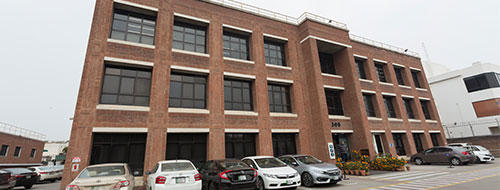Mango has its own specific value of nutrition and taste among all fruits available in summer season in Pakistan. That’s why it is not only the national fruit of Pakistan but also the king of fruits. Pakistan accounts for 4% of the world’s mango production, and the fruit is the second most cultivated in the country, making it an important contributor of the country’s revenues. There is a growing demand for mango pulp not just locally but worldwide for drinks and juices. Pakistan’s Chaunsa variety is a potential important source of pulp for juices and other by products.
In Pakistan, most of the mango orchards are owned by small growers who lack enough knowledge and facilities to use modern techniques for cutting, pruning, sanitation, insecticides and fertilizer application and management practices.
Nestlé Pakistan, as part of its global and local obligations, believes in Creating Shared Value (CSV) for the communities in which it works and lives. The health of our company is intrinsically linked to the health and resilience of the society we operate in; this is why Nestlé’s purpose is to enhance quality of life and contribute to a healthier future.
Nestlé Chaunsa Project, in partnership with Mango Research Institute (MRI), aims to improve the livelihood of farmers within the Chaunsa mango sector by strategic CSV intervention through implementation and replication of best farm practices.
Our Chaunsa Project is a sincere venture where we are training and building the capacity of Chaunsa mango farmers, with the support of our partners. The identified training areas include pre- and post-harvest horticulture, plant propagation and varietal assessment. Small Mango farmers are equipped with skills required so they can take advantage of new opportunities in the mango farming sector, including canning, pulping and exporting. These best farm practices will help increase the yield and improve the quality of Chaunsa mangoes.
The ultimate objective of the Chaunsa Project is to make these mango growers an integral part of Nestlé’s value chain. The results of our endeavors have been quite fruitful, as the partner farms for our pilot phase have shown considerable improvement both in quality and quantity of Chaunsa mangoes due to the implementation of best farm practices.
NESTLÉ FRUITA VITALS is the flagship brand within Nestlé’s beverages range, made from the highest quality fruits sourced from around the world. We use the best variant of Chaunsa mango as pulp raw material for our premium quality Nestlé Chaunsa juices. As a pilot project, we procured a limited quantity of Chaunsa mangoes in 2018, with increasing the volume in 2019, from our project farms thus making these farmers part of our value chain. As through responsible sourcing of mango pulp and development of linkages with Nestlé’s value chain, small farmers now have better access to markets where they could sell their mangoes at competitive prices. The success of our Chaunsa Project is a source of encouragement for many other farmers to become a part of the program.
Together with Mango Research Institute, Nestlé Pakistan has also established demonstration plot of high density and ultra-high-density mango orchard in Multan. The orchard is equipped with drip irrigation system which helps in water saving and reducing use of fertilizer to make it environment friendly and economically sustainable. Mango Research Institute has also developed tunnel for raising mango saplings which will help researchers to develop new plantlets for mango growers at subsidized rates. The initiative will help in capacity building of mango growers for a sustainable mango farming business.
It is our commitment to continue the project in the coming years to enhance the quality of the Chaunsa mango in Pakistan, resulting in the socio-economic uplift of the small and medium mango farmers in the country. We are committed to our stakeholders and the communities for mutual growth and sustainability. Based on the strong foundations of compliance and sustainable business practices, this is our way of doing business.
Nestlé Chaunsa Project is in commitment with United Nations Sustainable Development Goal 8, Decent Work and Economic Growth and Goal 17, Partnerships for the goals.
Our Partners



In Commitment with
 |


